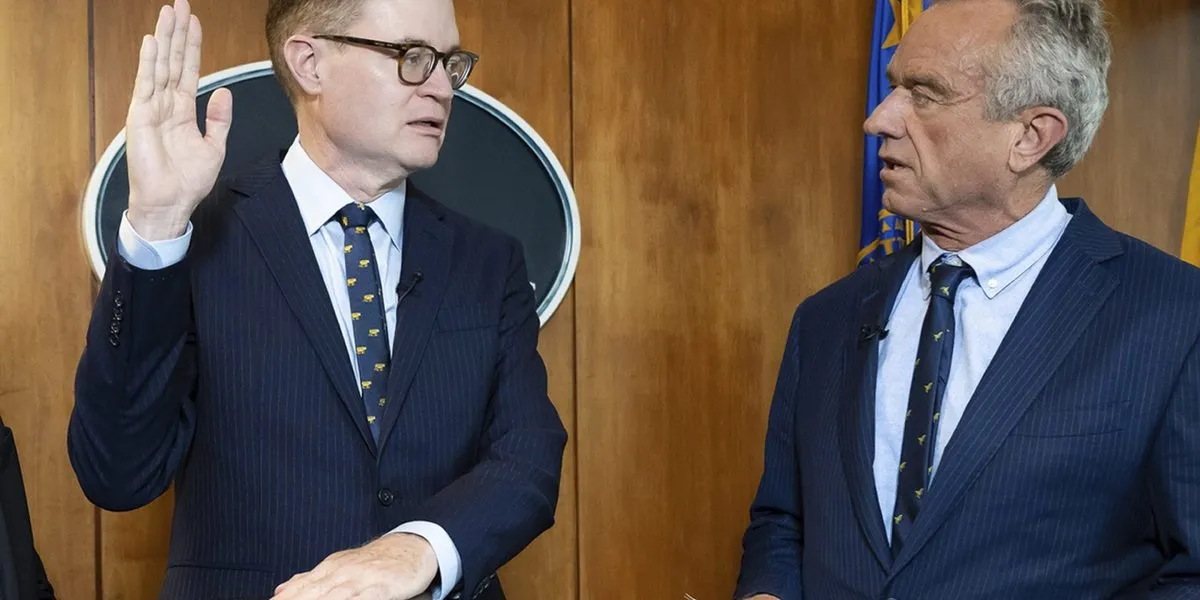
In a significant shake-up at the Centers for Disease Control and Prevention (CDC), Jim O’Neill, who previously served as Deputy to Health and Human Services Secretary Robert F. Kennedy Jr., has been appointed to replace Susan Monarez, a government scientist who held the position for less than a month. Monarez’s departure has raised eyebrows, as her legal representatives claim she resisted “rubber-stamping unscientific, reckless directives” and was unwilling to dismiss dedicated health experts.
O'Neill steps into this acting director role at a time when the CDC has been embroiled in controversy marked by firings, resignations, and ongoing efforts by Kennedy to realign the nation’s vaccine policies. These changes are reportedly influenced by Kennedy's long-standing skepticism regarding the safety and effectiveness of established vaccines. An HHS spokesperson confirmed that O’Neill would maintain his deputy position, although further details about his new responsibilities remain unclear.
O'Neill brings a unique background to the CDC, having previously worked with billionaire tech entrepreneur Peter Thiel. He was involved in managing Thiel’s investment fund and various projects, including a nonprofit aimed at creating manmade islands outside U.S. territory for governance experiments. Despite his diverse experience, O'Neill lacks formal training in medicine or healthcare, holding only bachelor’s and master’s degrees in humanities.
Unlike other officials in the Trump administration who were also Washington outsiders, O’Neill has a history with HHS, having served for six years under President George W. Bush. Observers believe he will likely be tasked with stabilizing the CDC amidst ongoing turmoil, although it is uncertain how much autonomy he will have from Kennedy.
Peter Pitts, a former FDA official, remarked, “Jim O’Neill is a health care policy professional, and I don’t think anybody can accuse him of being an RFK Jr. sock puppet.” However, the pressing question remains whether the role of the CDC director will be merely ceremonial, limiting O’Neill’s ability to act independently.
O’Neill is not closely aligned with Kennedy’s “Make America Healthy Again” movement, which focuses on issues like food dyes, fluoride, and ultraprocessed foods. Additionally, his stance during the COVID-19 pandemic was not one of vocal opposition to public health measures, contrary to other Trump administration officials.
As O'Neill assumes his new role, he has publicly supported the traditional federal oversight system for vaccines, including the CDC's critical role. During a confirmation hearing, he stated, “I support CDC’s recommendations for vaccines. I think that’s a central role that CDC has. It’s mandated in law.” However, he has refrained from criticizing Kennedy’s views on vaccine safety and effectiveness.
In the coming weeks, O'Neill may be called upon to endorse new recommendations from a CDC panel reshaped by Kennedy, which is set to review vaccinations for diseases like measles and hepatitis. Typically, the CDC director signs off on such recommendations, but Monarez was ousted partly due to her refusal to automatically endorse the committee’s decisions.
Federal regulations limit O’Neill’s tenure as acting director to a maximum of 210 days unless he is formally nominated. Dr. Anne Schuchat, a former acting CDC director, mentioned that acting agency heads hold significant power during their tenure, stating, “I was told, ‘You’re the director. Do what you need to do.’” However, the challenges of managing both HHS and CDC roles simultaneously are considerable, especially in a climate where four veteran CDC center directors have recently departed.
As O’Neill takes on this dual responsibility, the future of public health policy at the CDC remains uncertain, with high-stakes decisions regarding vaccines looming on the horizon. The agency's direction during this tumultuous period will likely be closely scrutinized as O’Neill navigates the complexities of his new role.